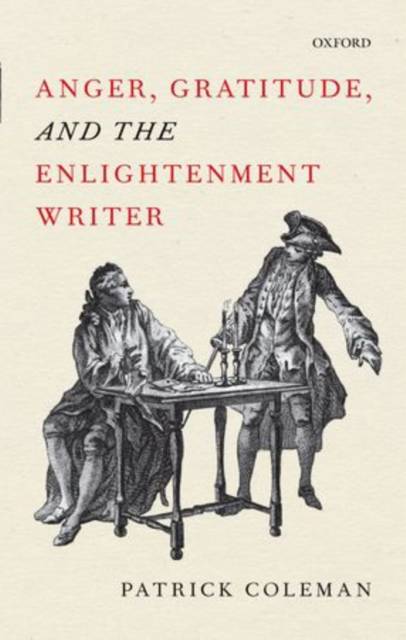
- Afhalen na 1 uur in een winkel met voorraad
- Gratis thuislevering in België vanaf € 30
- Ruim aanbod met 7 miljoen producten
- Afhalen na 1 uur in een winkel met voorraad
- Gratis thuislevering in België vanaf € 30
- Ruim aanbod met 7 miljoen producten
Zoeken
Anger, Gratitude, and the Enlightenment Writer
Patrick (Professor of French and Francophone Studies, University
Hardcover
€ 148,45
+ 296 punten
Omschrijving
On the one hand, anger and gratitude are crucial in appreciating what one owes to oneself or others; on the other, they disturb one's internal balance and reinforce one's dependence upon others. This book explores the tension between these two attitudes in the work of French Enlightenment writers such as Rousseau, Diderot, Marivaux, and Challe.
Specificaties
Betrokkenen
- Auteur(s):
- Uitgeverij:
Inhoud
- Aantal bladzijden:
- 272
Eigenschappen
- Productcode (EAN):
- 9780199589340
- Verschijningsdatum:
- 6/01/2011
- Uitvoering:
- Hardcover
- Afmetingen:
- 149 mm x 223 mm
- Gewicht:
- 462 g

Alleen bij Standaard Boekhandel
+ 296 punten op je klantenkaart van Standaard Boekhandel
Beoordelingen
We publiceren alleen reviews die voldoen aan de voorwaarden voor reviews. Bekijk onze voorwaarden voor reviews.







